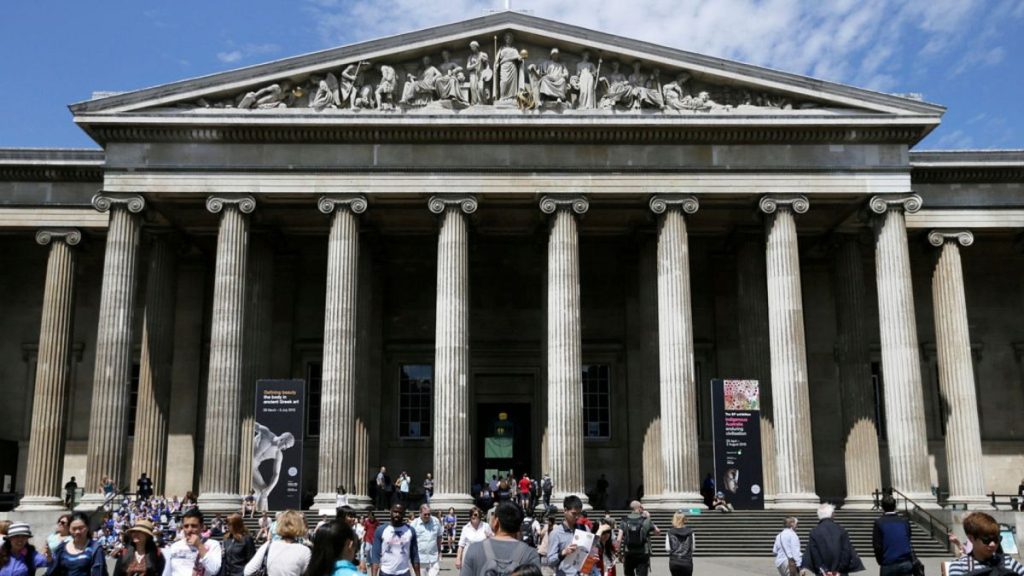The British Museum, a repository of global history and culture, finds itself at the center of a recurring debate surrounding the repatriation of artifacts. The recent dialogue between the British and Greek prime ministers regarding the Parthenon Sculptures, often referred to as the Elgin Marbles, has reignited the discussion on the ownership and rightful location of these ancient treasures. While the Greek government anticipates a shift in the British stance, Downing Street maintains its position, leaving the decision to the museum and emphasizing its commitment to existing legislation. This stalemate highlights the complex interplay between cultural heritage, historical context, and legal frameworks. The Parthenon Sculptures themselves, fragments of the iconic Athenian temple, embody the heart of this debate, serving as a potent symbol of national pride and historical legacy for Greece and a prominent exhibit within the British Museum’s collection.
The narrative surrounding the acquisition of the Parthenon Sculptures is multifaceted. Lord Elgin, the British Ambassador to the Ottoman Empire in the early 19th century, claimed authorization from local authorities to remove the sculptures, citing preservation concerns. However, opposing perspectives portray him as an opportunistic figure exploiting a weakened empire to seize cultural treasures, reflecting Britain’s colonial ambitions. This divergence of interpretation fuels the ongoing debate, making it difficult to establish a universally accepted historical truth. The conversation about the Parthenon Sculptures frequently expands into a broader inquiry into the provenance of numerous artifacts within the British Museum’s vast collection and raises questions about the legitimacy of their acquisition, particularly those originating from former colonies. This complex issue requires a nuanced understanding of historical context, cultural sensitivity, and legal considerations.
A common, albeit exaggerated, claim asserts that the British Museum would be emptied if all allegedly stolen artifacts were repatriated. This assertion, however, overlooks the significant portion of the collection sourced from within the United Kingdom. A comprehensive analysis of the museum’s online catalog reveals that over 650,000 items originate from England, Scotland, Wales, and Northern Ireland, with England being the single largest contributor. This data significantly undermines the claim of an entirely plundered collection, highlighting the substantial representation of British artifacts. The museum itself acknowledges the evolving nature of its catalog, emphasizing that it represents a work in progress with ongoing updates and research. This transparency underscores the complexity of accurately classifying and contextualizing a collection of such magnitude.
While the sheer volume of artifacts from the UK is substantial, it’s undeniable that some of the museum’s most renowned and controversial pieces originate from overseas. These iconic artifacts, including the Rosetta Stone from Egypt, the Bust of Ramses the Great, and statues from the Mausoleum at Halikarnassos (present-day Turkey), often become focal points in repatriation debates. Their historical significance and cultural value make them highly sought-after objects, intensifying the discussions about their rightful ownership and location. The Rosetta Stone, instrumental in deciphering hieroglyphics, is a prime example, with Egyptian campaigners arguing for its return as a symbol of rectifying historical injustices. Similarly, the Benin Bronzes from Nigeria and the Maqdala Collection from Ethiopia, taken during periods of British imperial expansion, are subjects of ongoing repatriation efforts. These cases highlight the enduring legacy of colonialism and its impact on cultural heritage.
The Benin Bronzes, a collection of sculptures, royal regalia, and personal ornaments dating back to the 16th century, were seized from Benin City during a British military expedition in 1897. Nigerian authorities contend that these artifacts are rightfully theirs and should be returned to their communities of origin, regardless of their current safekeeping within the British Museum. The Maqdala Collection, comprising liturgical objects, weapons, jewelry, and tabots (consecrated altar tablets), was taken from Ethiopia in 1868. While some items have been returned, others, including the tabots, remain in the UK. The British Museum’s stated intention is to loan the tabots to an Ethiopian Orthodox Church in Great Britain, a compromise that hasn’t fully satisfied repatriation advocates seeking their unconditional return to Ethiopia. These ongoing discussions underscore the complexities of balancing preservation, cultural sensitivity, and historical ownership in cases of contested heritage.
The British Museum is not alone in grappling with these issues. Museums across Europe face increasing pressure to repatriate artifacts acquired during colonial eras. These demands, often fueled by a growing awareness of historical injustices and a desire to reclaim cultural heritage, reflect a global shift in perspectives on museum collections and the ethics of acquisition. The recent controversy surrounding missing items from the British Museum’s collection further complicates the narrative. The disappearance of over 2,000 artifacts, some of which appeared on online marketplaces, raises concerns about security and internal management. While hundreds of items have been recovered, the incident underscores the vulnerability of even the most established institutions and the ongoing challenges of safeguarding cultural heritage. The confluence of these issues – repatriation debates, security concerns, and the ongoing re-evaluation of historical narratives – places the British Museum at a critical juncture, demanding careful consideration of its role in preserving and interpreting the global past.










